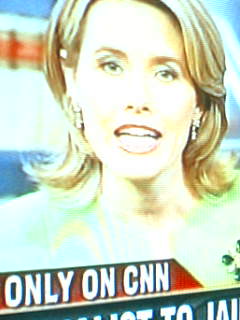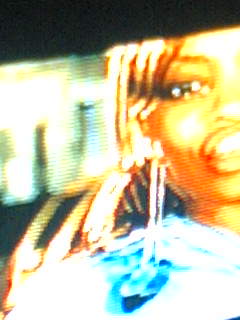|
"Commercial radio is dead. The people involved in commercial radio are all about money, advertizing, and marketing. They
don't give a fuck about the music."

King Britt's bristling tone comes down loud along the line from his home in Philadelphia, and it's clear that this man
has much to say about the parlous state of the American airwaves.
"I don't know if there's a solution," he muses. "It wasn't always like that - growing up in the '80s in
this country you'd hear all different kinds of music thrown together on the radio. Now it's segregated. There're R&B stations,
hip-hop stations, soul... and on them you hear the same 20 songs over and over, and it's bullshit. Thank god for college radio
and the internet!"
King Britt's most recent release, a dee-jay mix he's dubbed 'This Is What Radio Should Sound Like', is his own personal
antidote to the commercial fodder he feels saturates most stations found anywhere on the dial back home: "Diversity is
what it's all about. So, yeah, this is a political statement - all about diversity."
Musical multeity is certainly something that the album doesn't lack. Within a stylish production ethos that binds it are
alternative nuances of soul, R&B, house, pop, trance, jazz, acoustic and vocal garage. While some tracks are his own productions
- as Scuba and Sylk 130 - he also worked with journeyman vocalist Jody Watley on 'The Essence', and inducted a bevy of new,
diverse producers.
Indeed, diversity is something Britt says he's determined to pursue when it comes to dee-jaying and honing his own music.
"I don't want to be pigeon-holed," he asserts. "It's all music, no matter what style; it's one language with
a whole range of different dialects - and they all influence each other."
It shouldn't come as any surprise then that, while on this trip to Tokyo he'll spin records at techno/house club Yellow,
last year he played a down-beat afternoon session at the Blue Note, aided and abetted by a singer. Most people would equate
the two venues as chalk and cheese, but King Britt sees parallels.
"My set is actually not going to be that much different. It'll probably just be more electronic in style, and I can
be more eclectic. For me the Blue Note is a place where I can do special events, bringing out a live act I'm working with
at that time. Yellow is more about dee-jaying."
Britt has actually performed in Japan several times, and he perks up when he contemplates the country. "It's one
of my favorite places in the world - the technology, the culture, and the people. They have a real appreciation for the music
you won't find anywhere else."
His own appreciation for a world full of disparate styles has hallmarked this particular musical practitioner's output.
Named by his parents after the King James version of the Bible, Britt began dee-jaying in 1992 as a member of the Digable
Planets posse, whose trademark blend of hip hop and skat-style jazz garnered them a Grammy Award, and in 1994 he launched
the Sylk 130 collective.
Over the past decade, while remixing everyone from Yoko Ono to Tori Amos, Britt has also trialled his own personal coalescence
of contemporary sounds - with a nod in the direction of '80s music. An unapologetic admirer of the Smiths, Joy Division and
808 State, Britt is keen to pay homage to one essential eclectic individual.
"As a kid I was so immersed in music, from soul to jazz, and a lot of other things. But the most influential producer
would have to be Trevor Horn [Art Of Noise]. He is diversity, you know? I just love the way he kept reinventing himself, and
making completely new sounds - and that's had a huge impact on my own production."

This article contributed by Nobody in particular.
|

